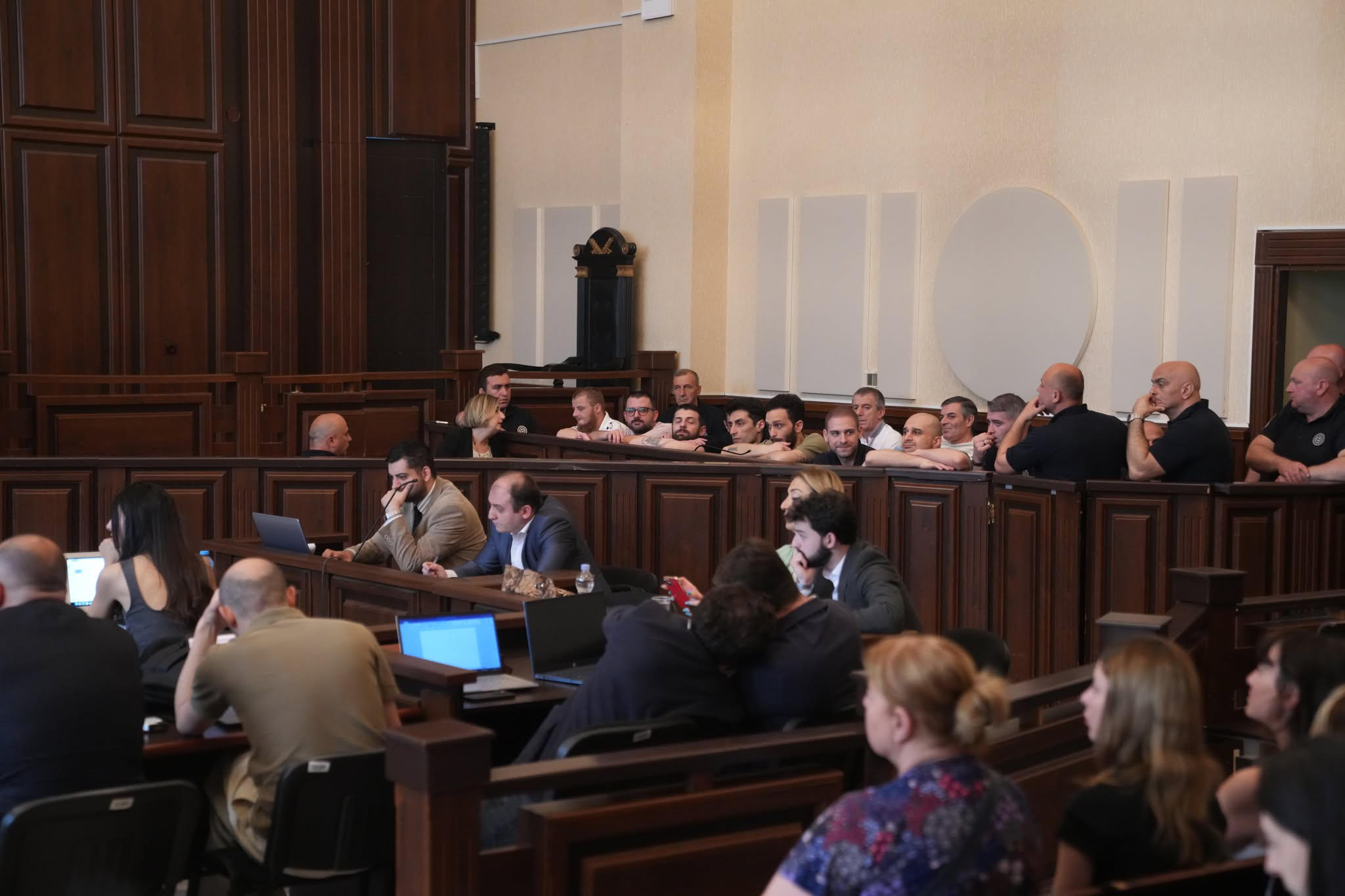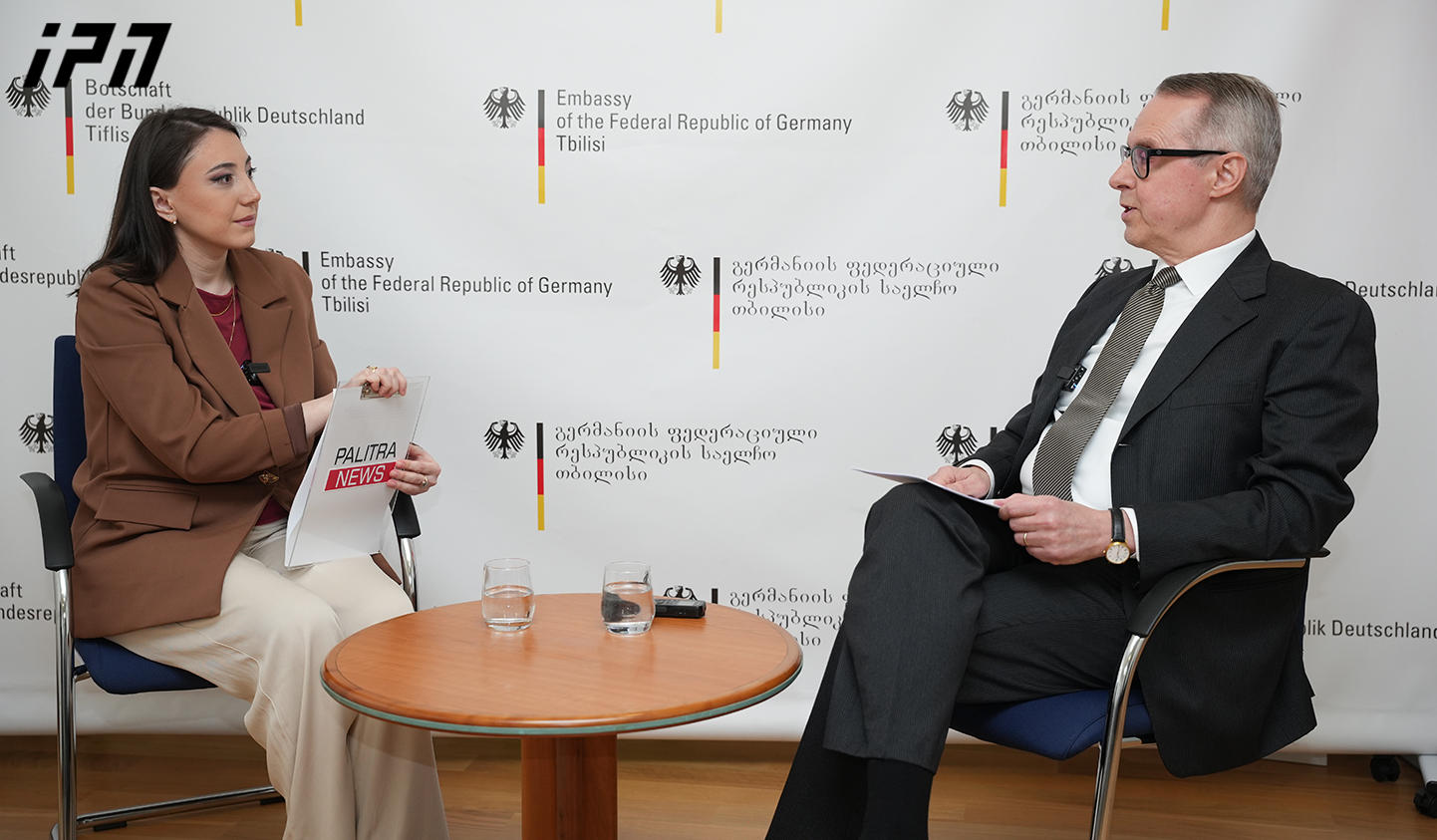An officer from the Special Tasks Department, who was questioned in the case of Andro Chichinadze, Onise Tskhadadze, and 9 other individuals detained during the protests, stated that he was wearing an identifying mark

According to the testimony of Giorgi Gobronidze, an employee of the Special Tasks Department, who was questioned in the case of actor Andro Chichinadze, humorist Onise Tskhadadze, and nine other individuals detained on charges of participating in group violence, he was wearing an identifying mark.
Gobronidze has the status of a victim in the case. According to his testimony, he was hit by a piece of pyrotechnics and sustained third-degree burns.
The witness stated that if the charges against the accused are proven, he will have claims against them.
In response to a question from lawyer Omar Purtseladze about whether he or his unit had an identifying mark, the witness gave an affirmative response and stated that his number was "106."
“Who is your direct supervisor?” the lawyer asked the Special Tasks Department employee.
“Is that necessary? Why?” the witness responded, to which Purtseladze explained that he was a lawyer and it was relevant. Gobronidze then stated that “on the day of his injury, his direct supervisor was Mikheil Lamazishvili.”
“What was your supervisor wearing?” the lawyer asked again, to which Gobronidze replied that he was wearing the standard Special Tasks Department uniform, not a “robocop” outfit. He did not know whether his supervisor was wearing a mask.
“I didn’t notice at the time. Before we went out, I saw him, and he wasn’t wearing a mask; it wasn’t necessary. Afterward, I didn’t notice,” the Special Tasks Department employee stated.
As he explained, tasks are given to the group leader, who then distributes them to the others. He added that he did not know the group leader, as the instructions were transmitted via radio.
Lawyer Irakli Chomakhashvili also asked questions about individuals dressed in black uniforms.
“Our employees don’t wear black uniforms... Those are called ‘escorts,’ and we are not part of the escorts’ group,” Gobronidze stated. According to him, he had no interaction with them.
“Do you know the ‘Marbiels’?” Chomakhashvili asked the witness again, to which he responded negatively.
For reference, during the protest rallies near the Parliament, 11 individuals were detained on charges of participating in group violence.
The detainees—Andro Chichinadze, Onise Tskhadadze, Jano Archaia, Ruslan Sivakov, Luka Jabua, Guram Mirtskhulava, Valeri Tetrashvili, Giorgi Terishvili, Irakli Kerashvili, Revaz Kinadze, and Sergei Kukharciuk—were charged under Article 225, Part 2 of the Criminal Code of Georgia, which pertains to participation in group violence.
This offense carries a penalty of imprisonment ranging from 4 to 6 years.
